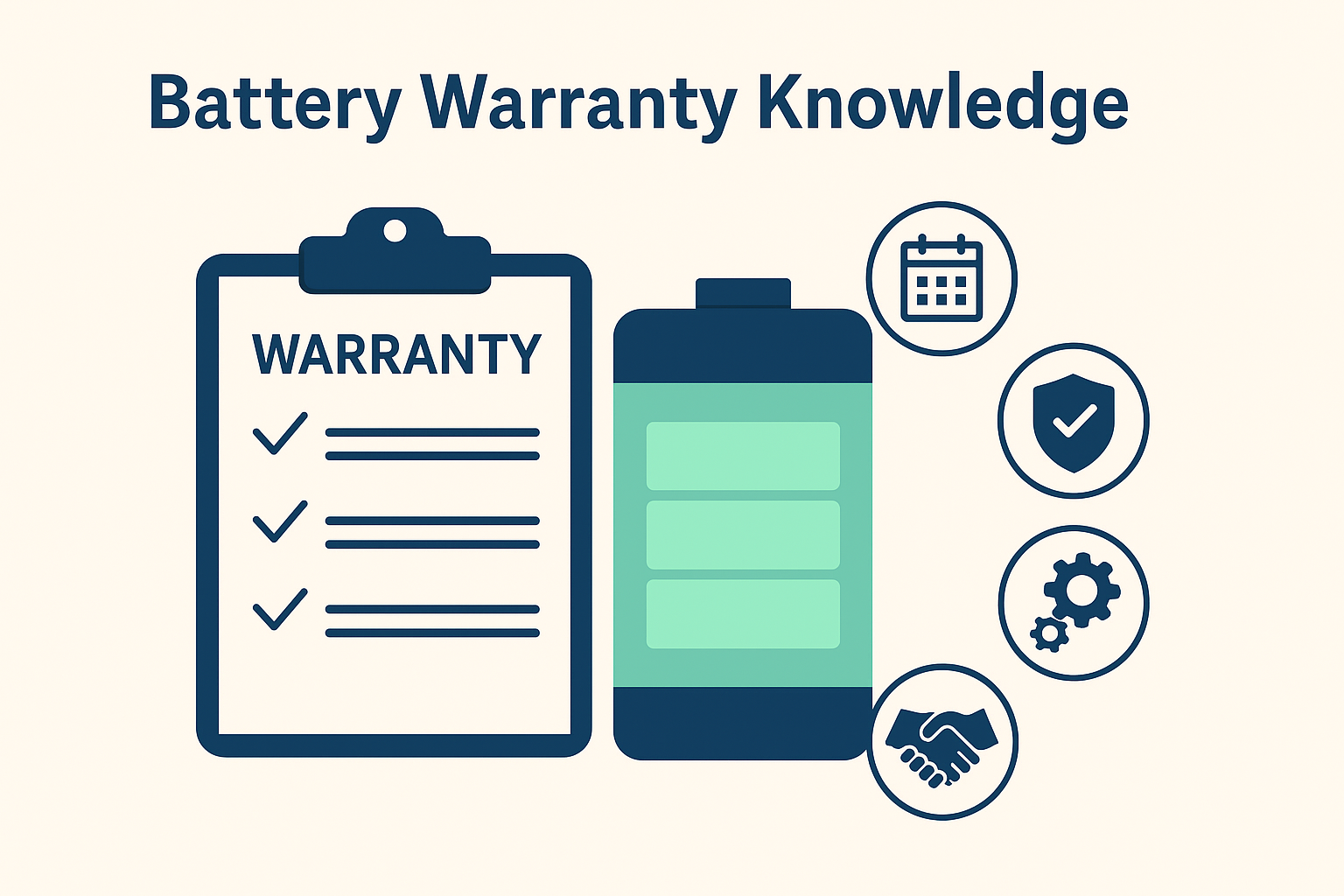It all started with a bright, sunny morning when James proudly watched his brand-new solar system hum to life. Months of research, planning, and investment finally came together. But after just two years, his solar battery began losing capacity—faster than he expected. He reached out to the installer, confident that his warranty would cover it. To his surprise, he learned his warranty only covered defects, not performance loss. That single misunderstanding cost him thousands.
James’s story isn’t unique. It’s a reminder of why understanding Battery Warranty Knowledge is crucial for every homeowner investing in energy storage. A good warranty can protect your investment—but only if you truly understand what it covers, how it works, and what the fine print means.
Why Battery Warranty Knowledge Matters
When purchasing a solar battery, many homeowners focus on capacity, brand, and price—but overlook the warranty. That’s a costly mistake. A solar battery warranty defines how long your system is protected and under what conditions. Without strong Battery Warranty Knowledge, you could be left with unexpected repair bills or replacement costs.
Think of it as insurance for your investment. Batteries degrade over time due to charge cycles and temperature variations. A well-understood warranty helps you plan for the long term and ensures you know exactly what kind of protection you have against these natural declines.
The Core Components of a Battery Warranty
1. Warranty Duration
Most battery warranties range from 5 to 15 years. The duration often reflects how confident the manufacturer is in its product. However, the timeline can vary based on how often the battery cycles—charging and discharging daily affects its lifespan.
2. Performance Guarantee
This clause specifies how much capacity your battery should retain over the warranty period. For example, a 70% retention after 10 years means if your 10 kWh battery drops below 7 kWh within that time, it qualifies for replacement or repair.
3. Cycle Life
Cycle life refers to how many full charge-discharge cycles your battery can handle before it degrades below the guaranteed level. Some manufacturers express warranties in cycles (e.g., 6,000 cycles) instead of years, or in combination with time.
4. Throughput Limit
A lesser-known but important term, throughput is the total amount of energy your battery can process over its lifetime. For example, if the warranty covers 30 MWh of throughput, it expires once your battery processes that much energy—even if the time period hasn’t ended.
5. Transferability
Some warranties allow transfer to a new homeowner if you sell your house. If not, the warranty becomes void upon sale—a crucial point to check if you ever plan to move.
Understanding What’s NOT Covered
Even the best warranties have limitations. Common exclusions include:
- Improper installation or maintenance
- Use outside manufacturer specifications (such as extreme temperatures)
- Unauthorized repairs or modifications
- Natural disasters like floods or fires
This is where true Battery Warranty Knowledge pays off. Many homeowners assume all failures are covered—but exclusions are often the reason claims are denied.
Manufacturer vs. Installer Warranties
Not all warranties are equal. Some protection comes from the manufacturer (for defects and performance), while others come from the installer (for workmanship or installation quality).
Understanding the difference is vital:
- Manufacturer Warranty: Covers internal battery components and performance.
- Installer Warranty: Covers setup, wiring, and connection errors.
When buying a solar system, confirm who handles claims and what process you’ll need to follow if something goes wrong.
How to Compare Battery Warranties
When evaluating multiple brands, here’s what to look for:
1. Duration and Retention Rate
Compare both how long the warranty lasts and how much capacity is guaranteed after that period.
2. Ease of Claim Process
Some manufacturers require extensive testing or documentation. Choose one that offers clear and simple procedures.
3. Reputation and Support
Look for companies known for honoring their warranties. Online reviews and customer feedback reveal how responsive they are when problems arise.
4. Transparency
Top manufacturers clearly list all terms on their website or datasheet. Avoid companies that bury critical details in fine print.
Extending Your Battery Life (and Warranty Value)
Proper care can extend your battery’s performance and ensure your warranty remains valid:
- Avoid deep discharges unless necessary.
- Keep temperatures stable.
- Follow installation and usage guidelines.
- Use authorized service providers only.
These small steps can help you get the most from your investment and prevent voiding your warranty accidentally.
The Future of Battery Warranties
As battery technology advances—especially with lithium iron phosphate (LFP) and solid-state innovations—warranties are evolving too. Some companies are offering smart warranties that monitor real-time battery health and automatically validate claims through connected systems.
In the near future, homeowners might not need to file a claim manually—the system itself will alert the manufacturer when a performance drop exceeds limits.
This evolution will make warranty claims faster, fairer, and more transparent—marking a new era in Battery Warranty Knowledge for consumers worldwide.
Conclusion
James’s story ended well—he learned from his mistake and chose a new battery with a clear, comprehensive warranty. He now knows exactly what’s covered, how performance is measured, and what steps to take if things go wrong.
The moral? Don’t let fine print surprise you. Take the time to build your Battery Warranty Knowledge before purchasing. It’s the smartest way to protect your investment, your energy independence, and your peace of mind.

